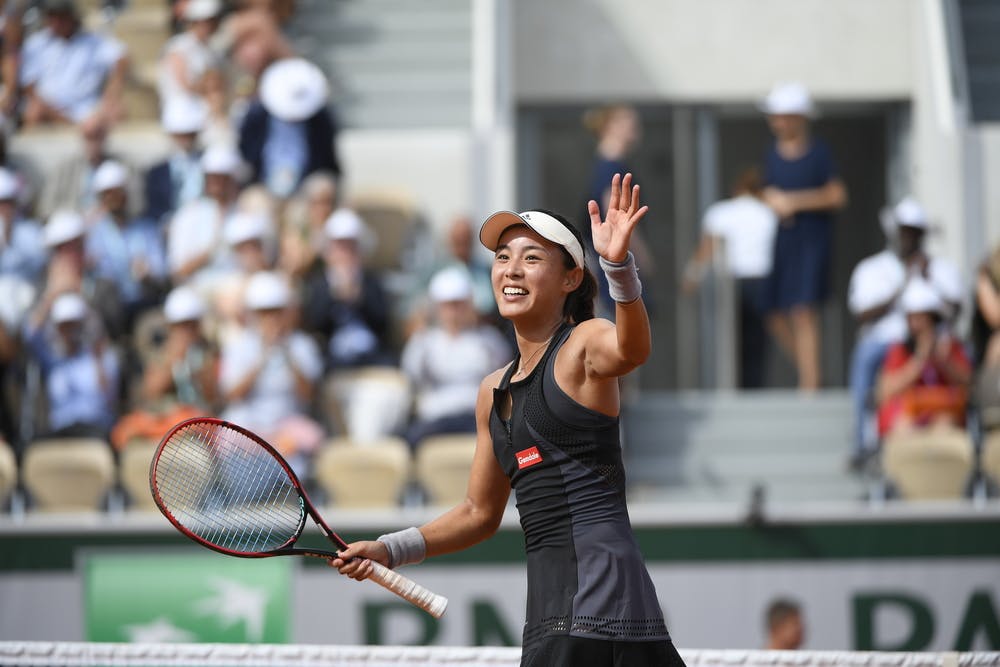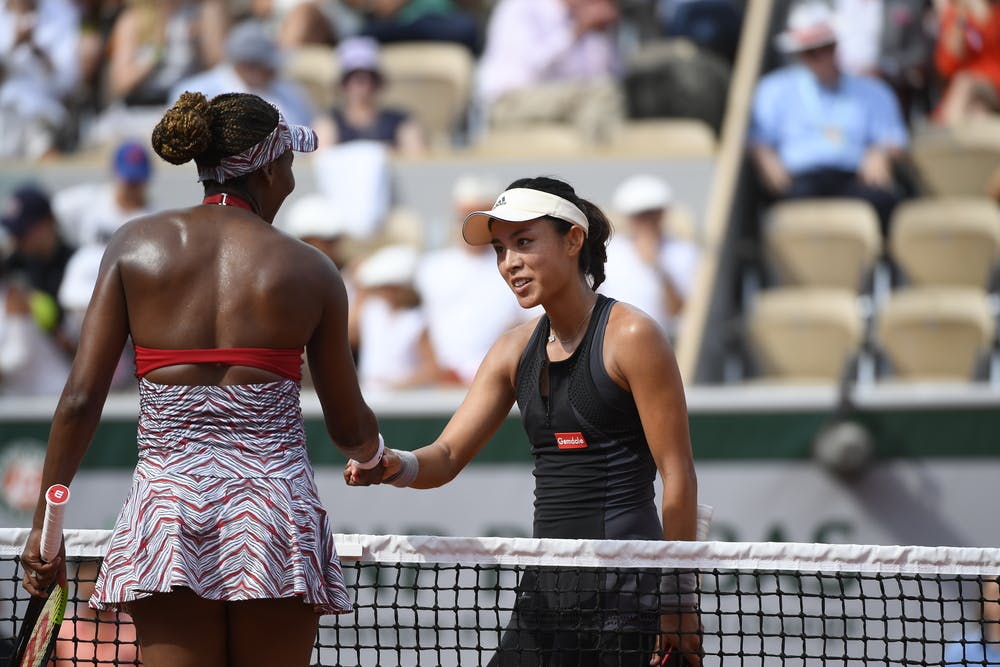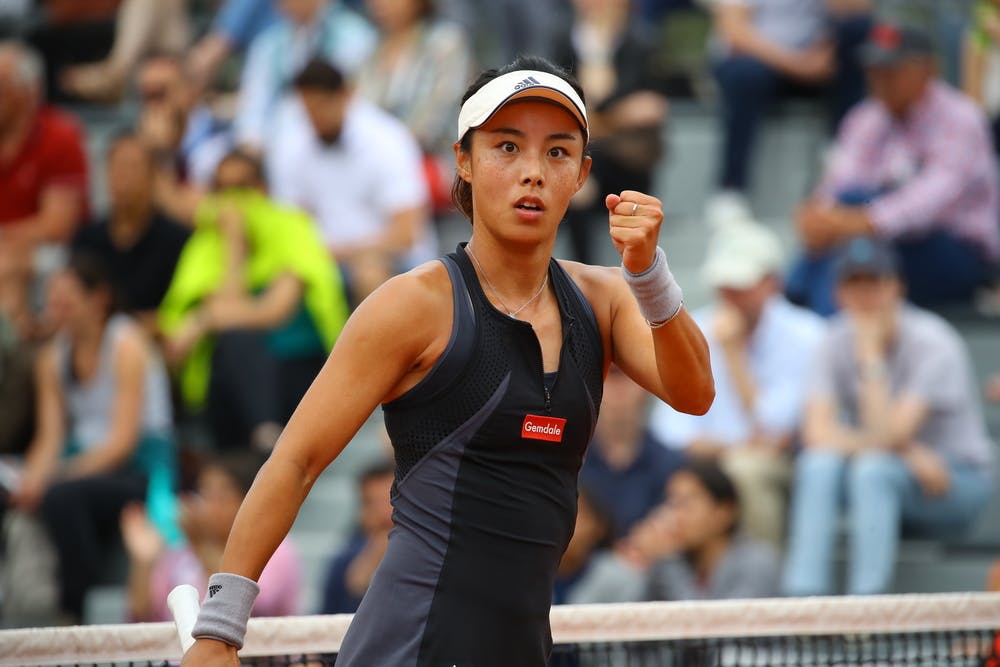A career-high ranking, two WTA titles and now she’s the leading light in Chinese tennis.
It’s been a sharp rise over the past six months, which the 26-year-old tributes to a reinvigorated work ethic, and Wang shows no signs of slowing down.
It’s all happening for Wang Qiang.

A career-high ranking, two WTA titles and now she’s the leading light in Chinese tennis.
It’s been a sharp rise over the past six months, which the 26-year-old tributes to a reinvigorated work ethic, and Wang shows no signs of slowing down.
At the time of writing Wang has accumulated 24 victories to her name since Wimbledon and that run has included a standout showing at the Premier Mandatory China Open.
In Beijing Wang dismantled former Roland Garros champion Jelena Ostapenko without dropping a single game, Karolina Pliskova and the in-form Aryna Sabalenka.
Piercing shots, a boosted consistency and speedy court coverage caught the eye in Beijing, with the run only being halted by eventual champion Caroline Wozniacki. A career-high ranking of No.24 was the reward.

Having been on the Tour for a decade, it’s been a steady journey for Wang until Paris this summer.
The 26-year-old caused a seismic shock by beating Venus Williams for a first top-10 victory of her career en route a maiden Grand Slam third round. Proving her versatility, Wang also advanced to the third round at Flushing Meadows at the US Open.
Wang’s coach Peter McNamara has hailed his protégé’s off court endeavour to increase her durability and fitness.
Well, one of the factors behind this improvement could be her football skills.
Check out the Tweet below which proves the Chinese star has some pretty fancy footwork.

In addition to a trophy laden summer, Wang carved out more history by defending her Asian Games title.
In doing so, Wang is the first player to win multiple goal medals in singles in the history of the prestigious championships.
“Being in the Asian Games, I felt more pressure because I’m competing for the country. I have to do my best for each point,” Wang told reporters in Wuhan. “I’m not representing myself only, I’m representing the government, my country.”
Competing on home soil has proved very fruitful for Wang this season.
Since Wimbledon, Wang has lifted the titles in Nanchang and Guangzhou for her opening successes at the WTA level, together with semi-final showings in Wuhan and Beijing.
It’s a staggering 17 wins from 20 matches on Chinese courts (ahead of playing in Hong Kong), which exemplifies her joy and motivation from playing in familiar surroundings.
“I’m really happy to be competing in China, getting a lot of support from fans. Also I love Chinese food, this is really important to me,” quipped Wang.
"A big thanks to the fans. They're working during the day, but they're coming here for the matches. Even when I'm low, they are always supporting me. I think this is why I'm here, this is what is motivating me in my career.”
It’s quite late in tennis terms, but Wang first properly picked up a racket aged nine and revealed that she would have become a teacher if professional sport hadn’t been a plausible path.
Back in Beijing, Wang became the first Chinese player to feature in the semi-finals since a certain Li Na in 2012.
Unsurprisingly, the former Roland Garros (2011) and Australian Open (2014) champion is the inspiration for the Chinese contingent of the tennis world.
“She is a goal. She’s a role model for many athletes, especially Chinese players,” lauded Wang. “If I can play as well as she did, I will have a very perfect life.”